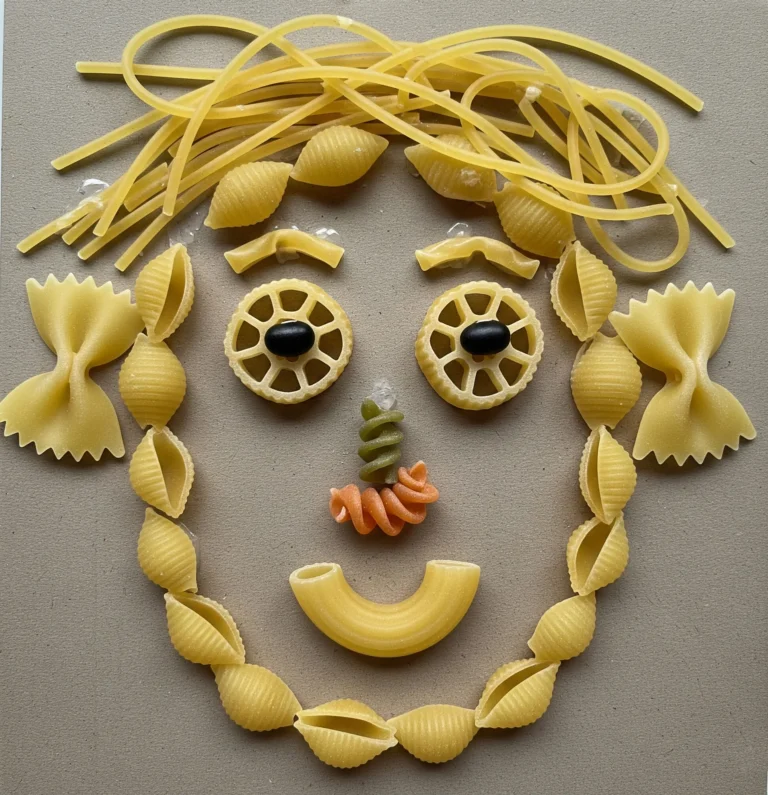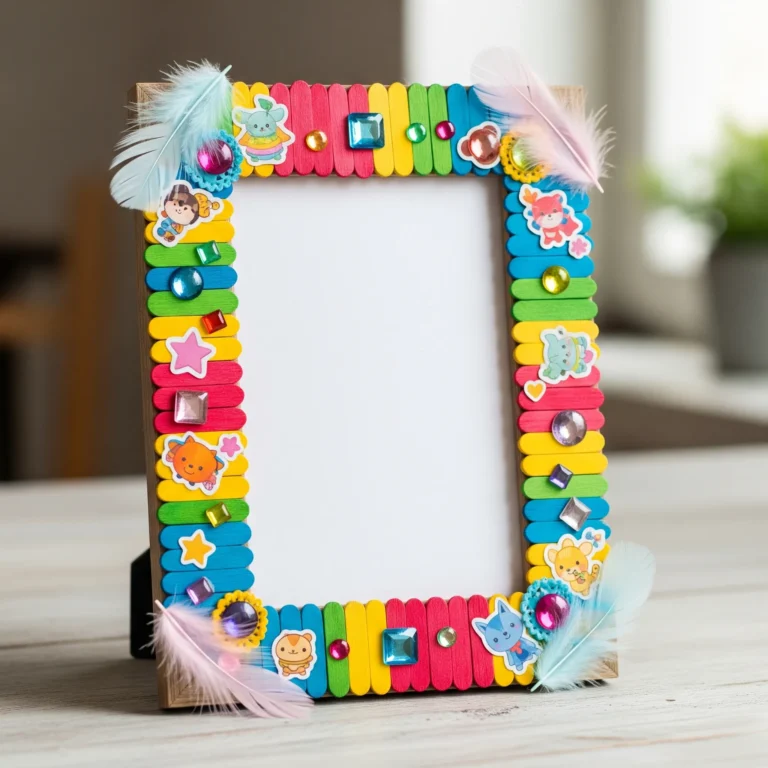‘All about me’ is a great theme to explore to help children learn more about themselves and the people around them. These engaging ‘all about me’ activities for EYFS are perfect for supporting children’s understanding of emotions, their bodies, their senses, their families and what makes them unique. All while building key skills across the areas of learning and development.
Blossom’s recommended 'All About Me' Activities for Early Years:
Activity 1: Loose Parts Self-Portraits
Encourage children to create self-portraits using a variety of loose parts such as buttons, fabric scraps, wool, natural materials, and pasta. Invite them to look in a mirror as they create and talk about their features, like eye colour, hair type, skin tone, etc.

EYFS Areas of Learning and Development and Early Learning Goals:
- Expressive Arts and Design
- Creating with Materials:
- Using a variety of materials allows children to explore texture, colour, and form.
- Creating with Materials:
- Being Imaginative and Expressive:
- Children represent themselves creatively through art.
- Being Imaginative and Expressive:
- Physical Development
- Fine Motor Skills:
- Picking up and placing small loose parts builds finger strength and hand-eye coordination.
- Fine Motor Skills:
- Personal, Social and Emotional Development
- Managing Self:
- Children develop self-awareness and confidence by exploring their own features.
- Managing Self:
- Understanding the World
- People, Culture and Communities:
- Conversations about appearance can include family similarities and differences.
- People, Culture and Communities:
Activity 2: My Body Puzzle
Provide large body outlines on paper or card and invite children to add body parts using craft materials or pre-cut pieces (eyes, nose, arms, etc.). Label each part as they assemble their body puzzle.
For some variation you could do this on a large piece of paper in small groups or outside by drawing around one of the children’s bodies with chalk.
EYFS Areas of Learning and Development and Early Learning Goals:
- Understanding the World
- The Natural World:
- Children learn about the parts of the human body and their functions.
- The Natural World:
- Physical Development
- Fine Motor Skills:
- Cutting and gluing pieces supports hand-eye co-ordination.
- Fine Motor Skills:
- Literacy
- Comprehension:
- Labelling body parts helps children link words to meaning.
- Comprehension:
Activity 3: Family Photo Frames
Invite children to bring in or draw pictures of their families. Provide materials for decorating a photo frame (lollypop sticks, stickers, gems, feathers). Once done add their family pictures to a low-level display that the children can see.

The children can then talk about their family pictures together.
EYFS Areas of Learning and Development and Early Learning Goals:
- Personal, Social and Emotional Development
- Building Relationships:
- Talking about family promotes a sense of belonging and connection.
- Building Relationships:
- Communication and Language
- Listening and Attention:
- Children listen and share stories about their family life.
- Listening and Attention:
- Expressive Arts and Design
- Creating with Materials:
- Decorating frames encourages creativity and choice-making.
- Creating with Materials:
Activity 4: My Five Senses Exploration
Set up interactive stations for each of the five senses: sight, sound, smell, touch, and taste. Provide a range of safe items for children to explore.
For example, colourful objects for sight, musical instruments for sound, fragrant herbs or spices for smell, textured fabrics or sensory bags for touch. Encourage the children to talk about what they experience at each station.
EYFS Areas of Learning and Development and Early Learning Goals:
- Communication and Language
- Speaking:
- Describing sensory experiences builds vocabulary.
- Speaking:
- Physical Development
- Fine Motor Skills:
- Handling small items at the stations supports coordination.
- Fine Motor Skills:
- Understanding the World
- The Natural World:
- Children explore how their senses help them understand the world around them.
- The Natural World:
Activity 5: Mirror Emotions
Set up a mirror with emotion flashcards nearby (happy, sad, angry, surprised, etc.). Encourage children to look at the cards and copy the different facial expressions in the mirror.
Extend by discussing times they’ve felt those emotions.
EYFS Areas of Learning and Development and Early Learning Goals:
- Personal, Social and Emotional Development
- Self-Regulation:
- Children begin to recognise and name their own emotions.
- Self-Regulation:
- Managing Self:
- They reflect on personal experiences that connect to different feelings.
- Managing Self:
- Communication and Language
- Speaking:
- Talking about emotions builds vocabulary and confidence in expressing feelings.
- Speaking:
- Understanding the World
- Past and Present:
- Children relate emotions to personal experiences or events.
- Past and Present:
Activity 6: Me and My Shadow
Take children outside on a sunny day or use a light source indoors to explore shadows. Encourage them to look at their own shadow and move their body to see how it changes.
You can trace their shadow on paper or chalk outside for added fun.
EYFS Areas of Learning and Development and Early Learning Goals:
- Physical Development
- Gross Motor Skills:
- Jumping, waving, and moving around encourages body awareness and coordination.
- Gross Motor Skills:
- Communication and Language
- Speaking:
- Talking about what they see helps develop early descriptive language.
- Speaking:
- Understanding the World
- The Natural World:
- Children begin to notice light and shadow, developing early scientific thinking
- The Natural World:
These ‘All About Me’ activities for EYFS offer engaging and playful ways for young children to learn about themselves, their emotions, their bodies, and the people who matter most to them. Through creative, sensory, and language-rich experiences, children can begin to make sense of their world and develop a strong sense of identity. From self-portraits and sensory play to shadows and family pictures, each activity supports the EYFS areas of learning.
For UK nurseries and early years providers, these activities offer a perfect way to celebrate each child’s uniqueness and create a strong foundation for personal, social, and emotional development.